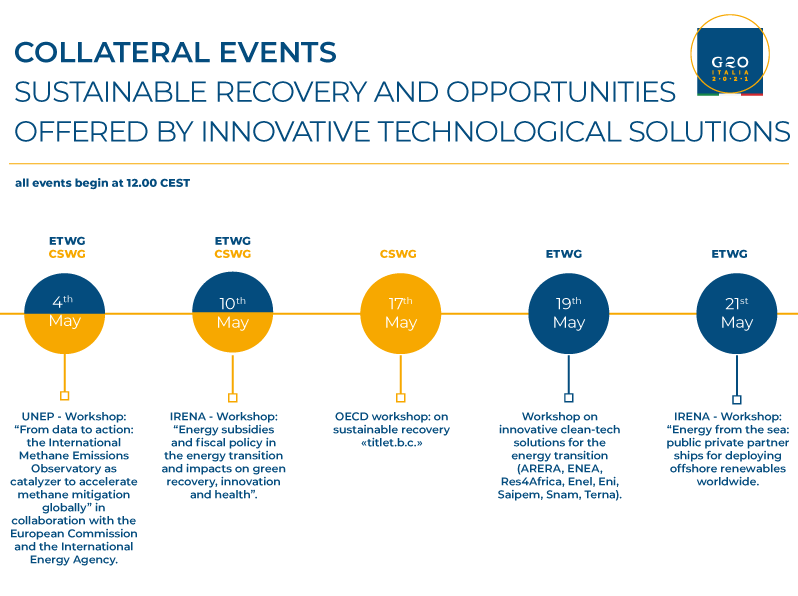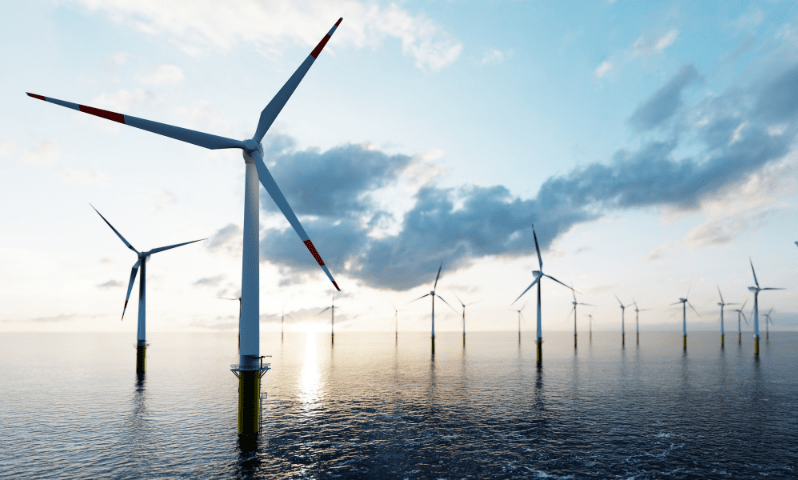Sustainable Recovery and opportunities offered by innovative technological solutions
In the second meeting of the CSWG-ETWG, the membership discussed the need to make the global recovery sustainable, inclusive and just, also by leveraging the opportunities offered by innovative technologies in order to reach our common climate and sustainable development goals.
April 29th, 2021
Strengthening the full implementation of the Paris Agreement and accelerating the achievement of its goals, especially enhancing efforts to limit the temperature increase to 1.5°C above pre-industrial levels, will be crucial in order to prevent the most catastrophic impacts of climate change.
However, under current policies, the world is far from achieving the goals of the Paris Agreement. For this reason, near-term action is essential to reverse the alarming upward trend in global emissions.
The economic stimulus packages and recovery plans that governments are putting in place have the potential to create a recovery that is sustainable, inclusive and just. This would allow governments to progress towards climate objectives, such as the transition to net-zero emissions, achieving a balance between anthropogenic emissions by sources and removal by sinks, while also providing the only kind of growth that will remain meaningful in the future: a sustainable one.
A sustainable, inclusive and just recovery will significantly enhance the resilience of economies, societies and people themselves, in the face of accelerating climate challenges. The G20 countries have a responsibility to lead the way on the global economic recovery, ensuring that it is aligned with both short- and long-term climate goals, such as aligning finance flows to accelerate the transition to net-zero emissions, and that it promotes global solidarity by leaving no one behind. Indeed, enhanced G20 international cooperation will play a key role in securing a global sustainable recovery, whose effectiveness on the ground will also depend on the synergies that will be built with relevant stakeholders, including sub-national actors, businesses, financial institutions and the civil society.
Unless properly oriented, recovery measures may lock-in existing industrial structures, perpetuate a business-as-usual approach, reduce global economic and social resilience and move the Paris Agreement goals further beyond reach.
Investments, both from the public and the private sector, are needed to act urgently, also through public-private partnerships (PPPs), starting from the deployment of cost-competitive clean energy technologies. To be on a pathway to reach net zero globally by 2050, the world must decrease CO2 emissions by nearly 40% over pre-pandemic levels by 2030. This requires rapid action to shift the trajectory of the energy sector, by enhancing sustainable mobility, renovating large numbers of existing buildings, and bringing nascent renewable technologies to full commercialisation within the decade. In addition, investments should also be oriented to develop and enhance new business models, such as circularity within the energy sector, that can contribute to meet the Paris Agreement goals.
We are not starting from scratch: the decrease in costs, resulting from improvements in technology and the adjustment of procurement mechanisms to changing market conditions, has proven to be an effective catalyst in ramping up investment and building additional clean capacity.
Beyond the deployment of available clean energy technologies, funding energy innovation and R&D is essential to reach net-zero emissions. A significant portion of the emission reductions needed to reach net-zero emissions must come from technologies that have not reached the necessary maturity to be used at the scale needed today, including innovative offshore wind, ocean energy – e.g. wave, tidal, salinity gradient and ocean thermal energy conversion technologies – low and zero carbon hydrogen production. Similarly, the waste sector offers opportunities to mitigate emissions thanks to biofuel production (such as biomethane) by using waste-to-fuel technologies and promoting circularity.
While the vast opportunities promised by such new technologies are clear, barriers need to be addressed and effectively tackled. These include specific technical challenges and costs that remain too high. Scaling-up and deployment will therefore be critical to fully exploit their potential and allow them to play a crucial role, bearing in mind that by 2050, power generation will triple compared to today’s levels, and renewables should supply 90% of total electricity by 2050, up from 25% in 2018.
In this second meeting of the CSWG-ETWG, the membership discussed the need to make the global recovery sustainable, inclusive and just, also by leveraging the opportunities offered by innovative technologies in order to reach our common climate and sustainable development goals.
In the next few weeks, the G20 Italian Presidency will continue to engage the membership around these crucial issues through a series of additional events that will bring greater focus on the sustainable recovery and innovative clean-tech solutions for the energy transition.

